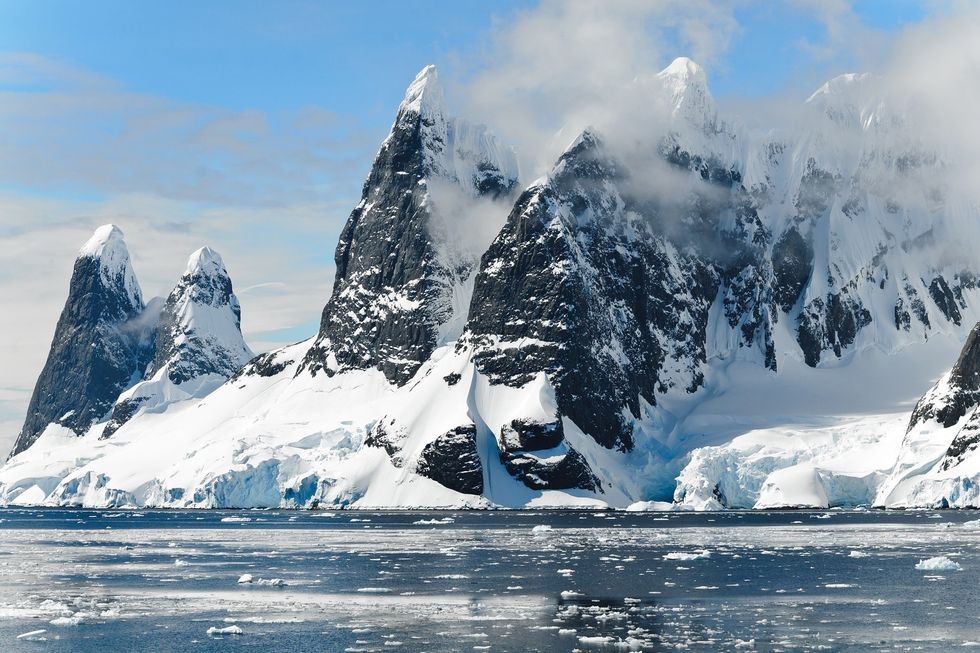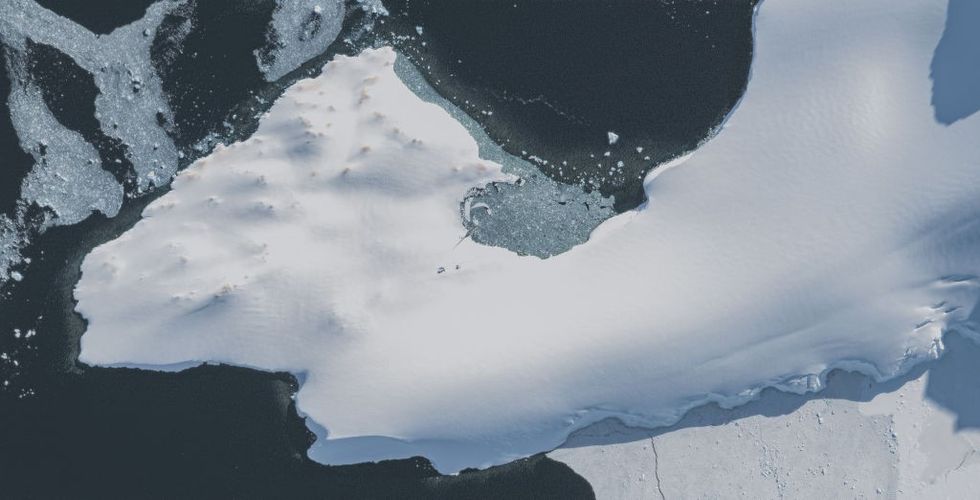Eliana Silver
Guest Reporter
Scientists have warned that melting ice sheets in Antarctica could trigger hidden volcanic eruptions beneath the surface, creating a dangerous feedback loop that may persist for centuries.
A new study based on 4,000 computer simulations reveals that as Antarctic ice melts due to the climate crisis, it reduces pressure on underground magma chambers, potentially leading to increased volcanic activity.
The process could create a self-reinforcing cycle where volcanic eruptions accelerate further ice melt, researchers found.
Antarctica is home to more than 100 volcanoes, with many hidden beneath the continent's vast ice sheet, particularly along its western coast.

While some volcanic peaks rise above the ice, numerous others remain buried deep below, making them challenging to detect and study.
To understand how ice loss affects these hidden volcanic systems, researchers conducted 4,000 computer simulations examining the relationship between gradual ice melt and buried magma chambers.
The study reveals that melting ice relieves pressure on the rocks below, allowing compressed magma to expand and increase pressure on chamber walls.
Scientists compare the process to opening a soda bottle - as ice melts, the reduced pressure allows gases dissolved in the magma to escape, building pressure in the chamber.
MORE LIKE THIS:
Though these eruptions occur beneath the surface, they can have significant impacts, with heat from subglacial volcanic activity accelerating melting deep below the ice sheet.
The research suggests this feedback mechanism operates over centuries, meaning its effects could continue even if greenhouse gas emissions are drastically reduced.
Historical evidence indicates similar processes may have occurred during the last ice age when Antarctica's ice sheet was much thicker.
"Eruptions beneath the ice sheet could add to the melting, compounding the challenges already posed by rising global temperatures," the study states.

The slow but persistent nature of these changes raises concerns about Antarctica's long-term stability.
The implications of this volcanic feedback loop are particularly concerning as Antarctic sea ice reached near-record lows in 2024.
The 2024 winter maximum for Antarctic sea ice was recorded as the second lowest in history.
With Antarctica's ice sheet already being a major contributor to rising sea levels globally, the potential increase in volcanic activity could further amplify this problem.
Find Out More...
A new study based on 4,000 computer simulations reveals that as Antarctic ice melts due to the climate crisis, it reduces pressure on underground magma chambers, potentially leading to increased volcanic activity.
The process could create a self-reinforcing cycle where volcanic eruptions accelerate further ice melt, researchers found.
Antarctica is home to more than 100 volcanoes, with many hidden beneath the continent's vast ice sheet, particularly along its western coast.

While some volcanic peaks rise above the ice, numerous others remain buried deep below, making them challenging to detect and study.
To understand how ice loss affects these hidden volcanic systems, researchers conducted 4,000 computer simulations examining the relationship between gradual ice melt and buried magma chambers.
The study reveals that melting ice relieves pressure on the rocks below, allowing compressed magma to expand and increase pressure on chamber walls.
Scientists compare the process to opening a soda bottle - as ice melts, the reduced pressure allows gases dissolved in the magma to escape, building pressure in the chamber.
MORE LIKE THIS:
- Furious passengers go on hunger strike after luxury Antarctica cruise trip is abandoned
- 'No plans!' Scientists warn volcanic eruption could be disastrous for humanity
- Iceland volcano erupts for seventh time this year as lava spews out and tourists forced to evacuate
Though these eruptions occur beneath the surface, they can have significant impacts, with heat from subglacial volcanic activity accelerating melting deep below the ice sheet.
The research suggests this feedback mechanism operates over centuries, meaning its effects could continue even if greenhouse gas emissions are drastically reduced.
Historical evidence indicates similar processes may have occurred during the last ice age when Antarctica's ice sheet was much thicker.
"Eruptions beneath the ice sheet could add to the melting, compounding the challenges already posed by rising global temperatures," the study states.

The slow but persistent nature of these changes raises concerns about Antarctica's long-term stability.
The implications of this volcanic feedback loop are particularly concerning as Antarctic sea ice reached near-record lows in 2024.
The 2024 winter maximum for Antarctic sea ice was recorded as the second lowest in history.
With Antarctica's ice sheet already being a major contributor to rising sea levels globally, the potential increase in volcanic activity could further amplify this problem.
Find Out More...
